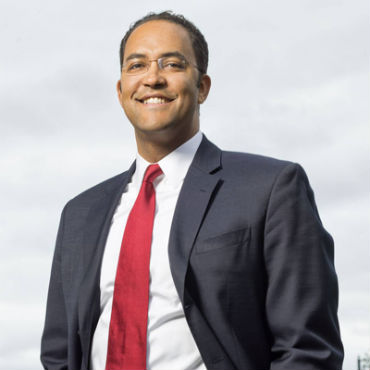Hurd: Cyber bills are in good shape
The chairman of the Oversight and Government Reform IT Subcommittee says some basic questions still need to be answered on information sharing.

Texas Republican Rep. Will Hurd is chairman of the House Oversight and Government Reform Information Technology Subcommittee.
As a former CIA agent with a computer science background, Rep. Will Hurd has had his fingerprints on offensive cyberattacks.
"I will never go to Moscow. They're still a little upset about a couple of things they found out I did," the Texas Republican said at Georgetown University's International Conference on Cyber Engagement on April 27.
As a member of Congress, Hurd has his fingerprints on a piece of cybersecurity legislation. He sponsored an amendment included in the cyber information sharing measure passed by the House on April 23 that would
authorize the existing Einstein 3A program, and two other provisions of Hurd's were added during committee consideration.
The legislation "is just the beginning," said Hurd, who chairs the Oversight and Government Reform Information Technology Subcommittee. "This is just creating the framework to allow sharing [between industry and government]. There are some basic questions that need to be answered, Hurd said, including how government-to-private sector sharing will work in practice, and how to improve sharing inside government, between agencies.
The Obama administration acquiesced in passage of two pieces of cyber legislation in the House last week, with the understanding that they would be amended to fine tune some privacy and liability concerns further down the legislative pike. Hurd thinks that the legislation is in good shape.
"What we have developed, especially on the Homeland Security [Committee] bill, has been in cooperation with a lot of the privacy folks, people who have been looking at this issue for a long time. We think we've gotten it right. I can't speak to what my Senate colleagues will do, but I think we'll get them to our point of view," Hurd told FCW on the sidelines of the conference.
International cooperation was a big topic at the Georgetown event. U.S. cyber law potentially could serve as a guide for other countries, said White House cybersecurity coordinator Michael Daniel. "We can model the kinds of legislation and policies and statutes that we want people to adopt," Daniel told FCW. "The thing that I'm always mindful of is when it comes to cyberspace and the Internet, the U.S. doesn't have a unique position. We can't impose policies and then tell other countries that they can't do that."
The structure of the House bills -- the attempt to balance privacy for individuals and liability for companies -- is a good start, Daniels said. "I would like to see other countries follow it. Other countries make slightly different tradeoffs and slightly different value judgments on where they want to put certain lines -- they have to do that for their own political and social contexts. But I do think it presents a good model," he said.
NEXT STORY: Cyber treaty not in the cards






